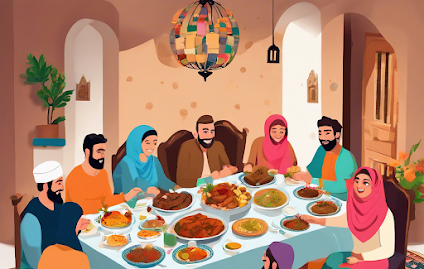Etiquettes of Meat Consumption
Etiquette of Meat Consumption during Eid al-Adha
Eid al-Adha, the Festival of Sacrifice, is a significant Islamic observance that commemorates the willingness of the prophet Ibrahim (Abraham) to sacrifice his son as an act of obedience to God. As part of this celebration, many Muslims partake in the ritual slaughter of animals and the subsequent consumption of the meat.
While the act of meat-eating during Eid holds profound religious and cultural significance, it is important to approach it with proper consideration and care. In this brief post, we shall explore the benefits, potential drawbacks, and key precautions to observe when consuming meat on this auspicious occasion.
Benefits of Meat Consumption during Eid:
- Fulfillment of a religious obligation and expression of devotion
- Provision of high-quality, nutrient-dense protein for sustenance
- Opportunity to share and distribute meat with those in need, fostering social cohesion
Potential Drawbacks and Considerations:
- Improper handling or storage of meat can pose health risks, such as foodborne illnesses
- Excessive or indulgent consumption of meat may have negative impacts on overall health
- Environmental concerns regarding the sustainability of large-scale animal slaughter
Key Precautions and Tips:
- Ensure that the slaughter and preparation of the meat adhere to Islamic guidelines and standards of cleanliness and humane treatment
- Practice moderation in meat consumption, balancing it with a diverse, well-rounded diet
- Prioritize the distribution of meat to those in need, such as the less fortunate and underprivileged members of the community
- Properly store, handle, and cook the meat to minimize the risk of foodborne diseases
By approaching the consumption of meat during Eid al-Adha with reverence, moderation, and consideration for health and ethical concerns, we can fully embrace the spirit of this sacred celebration while upholding the principles of responsible and sustainable living.



Comments